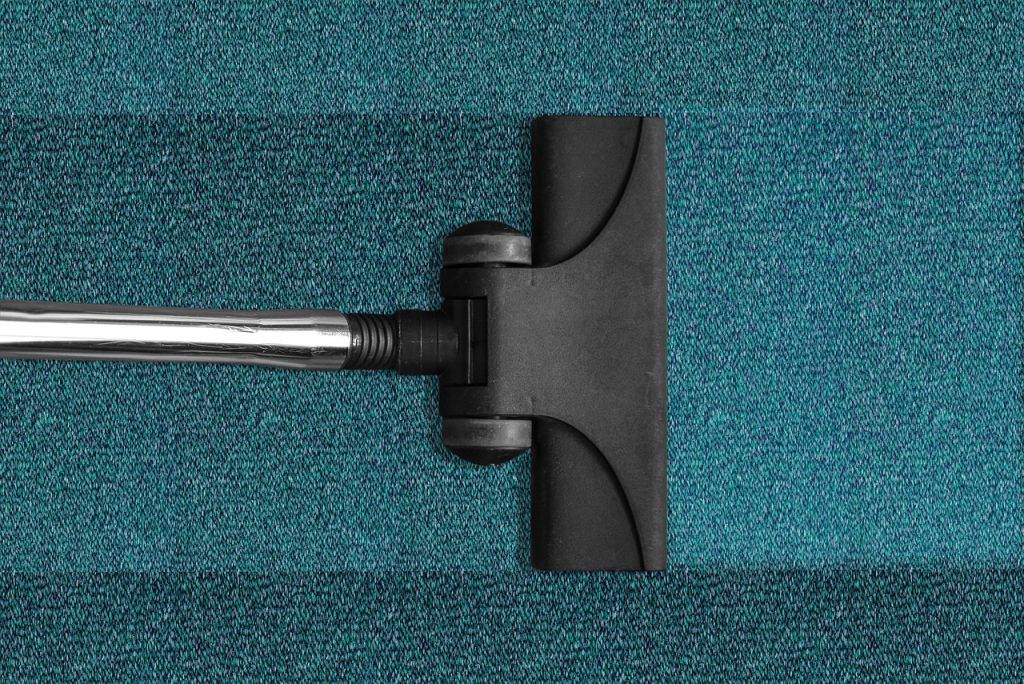3October 2023
Are you confused about the distinction between deep cleaning and regular cleaning? Look no further! This article will demystify the differences between the two, helping you understand when to opt for a deep clean versus a regular clean. Whether you’re sprucing up your home or considering hiring professional cleaners, gaining clarity on this topic is essential to achieving the level of cleanliness you desire. So, let’s delve into the nuances of deep cleaning and regular cleaning and clarify the benefits of each.

This image is property of pixabay.com.
Regular Cleaning
Definition
Regular cleaning refers to the routine cleaning tasks that are performed on a regular basis to maintain cleanliness and tidiness in a space. These tasks typically include dusting surfaces, vacuuming or mopping floors, cleaning bathrooms, and wiping down kitchen countertops.
Purpose
The purpose of regular cleaning is to keep a space clean and organized on a day-to-day basis. It helps to remove surface-level dust, dirt, and debris, keeping the area presentable and comfortable. Regular cleaning also helps to prevent the buildup of grime and bacteria, promoting a healthy and hygienic environment.
Frequency
Regular cleaning tasks should be performed on a regular basis, depending on the specific needs of the space and its usage. In most households, it is recommended to perform regular cleaning tasks at least once or twice a week, though high-traffic areas may require more frequent attention.
Tasks
Tasks involved in regular cleaning include vacuuming or sweeping floors, dusting surfaces, cleaning windows, wiping down kitchen appliances, and cleaning bathrooms. These tasks are generally quick and do not require deep cleaning techniques or specialized equipment.
Deep Cleaning
Definition
Deep cleaning is a more thorough and intensive cleaning process that focuses on cleaning areas that are often overlooked during regular cleaning. It involves cleaning hard-to-reach or neglected areas and tackling tough stains and dirt.
Purpose
The purpose of deep cleaning is to remove dirt, grime, and buildup that regular cleaning might not be able to address. Deep cleaning helps to rejuvenate and restore the cleanliness and hygiene of a space, ensuring a more thorough and complete clean.
Frequency
Deep cleaning is not required as frequently as regular cleaning. It is typically recommended to perform deep cleaning tasks on a quarterly or semi-annual basis, depending on the specific needs of the space and its usage.
Tasks
Deep cleaning tasks may include cleaning behind appliances, scrubbing grout, shampooing carpets, washing curtains, and sanitizing high-touch areas. These tasks require more time, effort, and may involve the use of specialized cleaning products or equipment.

This image is property of pixabay.com.
Key Differences
Scope
Regular cleaning focuses on maintaining cleanliness in a space on a day-to-day basis, covering basic cleaning tasks to ensure tidiness. Deep cleaning, on the other hand, covers more extensive and neglected areas that require extra attention beyond surface-level cleaning.
Intensity
Regular cleaning involves routine tasks that are often quick and relatively easy to complete. Deep cleaning, on the other hand, requires more time, effort, and attention to detail. It involves tackling tough stains, hard-to-reach areas, and more intensive cleaning processes.
Time Required
Regular cleaning tasks can usually be completed within a shorter period of time, as they are performed regularly and cover the basic cleaning needs of a space. Deep cleaning tasks, on the other hand, may require several hours or even days to complete, depending on the size and condition of the space.
Cost
Regular cleaning can often be done using basic cleaning supplies that are readily available in households. Deep cleaning may require specialized cleaning products, tools, or equipment, which can incur additional costs. Hiring professional cleaning services for deep cleaning can also add to the overall cost.
When to Use Each
Regular Cleaning
Regular cleaning should be performed consistently to maintain cleanliness and tidiness in a space. It is ideal for day-to-day maintenance and prevention of dirt and grime buildup. Regular cleaning is suitable for general upkeep and to ensure a clean and comfortable living or working environment.
Deep Cleaning
Deep cleaning is best suited for occasions when a space requires a more thorough and intense cleaning. It is recommended for cleaning neglected or heavily soiled areas. Deep cleaning is also beneficial before special occasions, when moving into a new space, or when transitioning from one season to another.

This image is property of pixabay.com.
Benefits of Regular Cleaning
Maintaining Cleanliness
Regular cleaning helps to maintain cleanliness and tidiness, ensuring a fresh and inviting space. It keeps surfaces free from dust, dirt, and grime, making the area more visually appealing and comfortable to be in.
Preventing Build-Up
By performing regular cleaning tasks, you can prevent the buildup of dirt, bacteria, and allergens. Regularly cleaning high-touch areas such as doorknobs, light switches, and countertops helps to minimize the spread of germs and maintain a healthy environment.
Promoting Health and Safety
Regular cleaning helps to reduce the presence of allergens and pollutants in the air, promoting better indoor air quality. It also helps to minimize the risk of accidents or injuries by keeping the space free from clutter and maintaining the cleanliness of floors, stairs, and other surfaces.
Benefits of Deep Cleaning
Removal of Stubborn Stains
Deep cleaning is effective in removing tough stains that may not be easily removed with regular cleaning methods. By using specialized products and techniques, deep cleaning can eliminate stubborn stains from carpets, upholstery, and hard surfaces, restoring their appearance.
Elimination of Hidden Dirt
Deep cleaning reaches areas that are often overlooked during regular cleaning, such as behind furniture, under appliances, and in crevices. By targeting these hidden areas, deep cleaning ensures a more thorough and complete clean, removing hidden dirt and debris.
Improved Indoor Air Quality
Deep cleaning, especially carpet and upholstery cleaning, helps to remove trapped dust, allergens, and pollutants from the fibers. This contributes to improved indoor air quality, which is particularly beneficial for individuals with allergies or respiratory conditions.

Professional Cleaning Services
Hiring Professionals
For deep cleaning tasks or when you require a thorough and professional clean, hiring cleaning services is a convenient option. Professional cleaners have the expertise, experience, and specialized equipment to handle deep cleaning tasks effectively and efficiently.
Cost Considerations
The cost of professional cleaning services for regular cleaning tasks is generally affordable, especially for recurring services. However, deep cleaning services may incur additional costs due to the specialized equipment and products used, as well as the level of effort and time involved.
Finding Reliable Services
When hiring professional cleaning services, it is important to choose a reliable and reputable company. Ask for recommendations from friends or family, read online reviews, and check the company’s credentials, insurance, and customer satisfaction ratings. This ensures that you receive quality service and peace of mind.
DIY Deep Cleaning
Essential Tools and Supplies
When performing deep cleaning tasks yourself, ensure you have the necessary tools and supplies. This may include a vacuum cleaner, microfiber cloths, scrub brushes, cleaning solutions suitable for the specific task, protective gloves, and appropriate safety equipment.
Step-by-Step Guide
To deep clean a space, start by decluttering and removing items from the area that need attention. Then, clean one area at a time, focusing on hard-to-reach and neglected areas. Use appropriate cleaning products and tools for each task, and follow directions carefully. Finally, thoroughly clean and disinfect high-touch areas.
Safety Precautions
When performing deep cleaning tasks, it is important to prioritize safety. Use protective gloves, eyewear, and clothing when working with chemicals or cleaning solutions. Ventilate the area if necessary, and follow product instructions and safety guidelines. Take breaks when needed and be mindful of any potential hazards.

Conclusion
Both regular cleaning and deep cleaning play important roles in maintaining cleanliness, hygiene, and the overall well-being of a space. Regular cleaning ensures day-to-day tidiness and prevents the buildup of dirt and grime. Deep cleaning, on the other hand, provides a more thorough and intensive clean, targeting neglected or heavily soiled areas. By understanding the key differences, benefits, and when to use each type of cleaning, you can create a clean and healthy environment for yourself and your loved ones. Whether you choose to do it yourself or hire professionals, a combination of regular and deep cleaning will help ensure a clean and inviting space.
